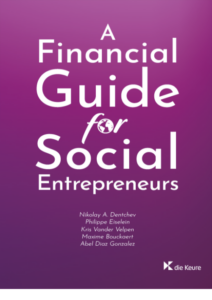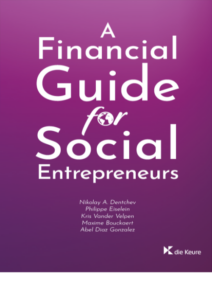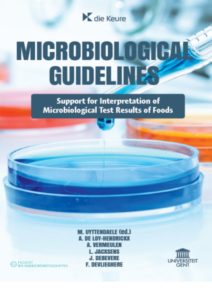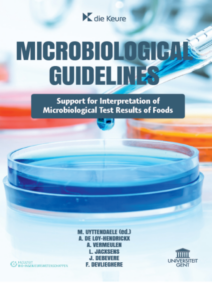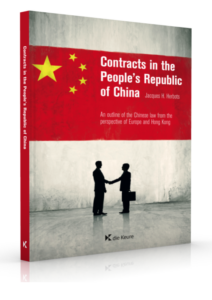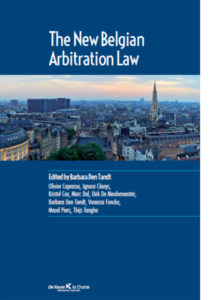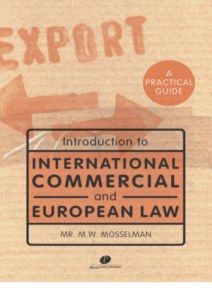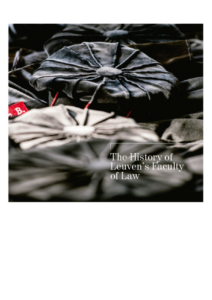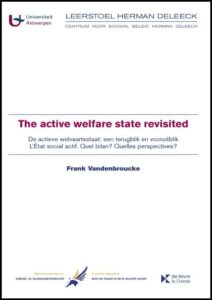| A Financial Guide for Social Entrepreneurs Boek This book provides what it promises to the reader, i.e. A financial guide for social entrepreneurs. It departs from the challenges that social entrepreneurs face to fund their ventures. We discuss three main challenges in this context:
This book offers an overview of the different funding possibilities while presenting the main funding actors in Belgium as an illustration. Yet, we think that more is needed to survive the financial wilderness of social entrepreneurship. Therefore, we advise attention to a solid business model, supportive ecosystem, impact measurement and effective communication. The illustrative case studies and the presentation of ecosystem actors that can provide support to social entrepreneurs make this book a quite practical guide. All cases and ecosystem actors presented here come from the Belgian context, which is what we know best. We are confident that this Belgian view can inspire the international community as well. This book could be useful to social entrepreneurs, impact investors, universities, vocational training centers, corporates supporting social entrepreneurs, social impact incubators and accelerators, policymakers or everyone who wants to help a social enterprise in their journey. And please enjoy reading, our societies need more social entrepreneurship! 2020 Bouckaert Maxime, Dentchev Nikolay, ... | €29 | |
| A Financial Guide for Social Entrepreneurs (e-book) E-book This book provides what it promises to the reader, i.e. A financial guide for social entrepreneurs. It departs from the challenges that social entrepreneurs face to fund their ventures. We discuss three main challenges in this context:
This book offers an overview of the different funding possibilities while presenting the main funding actors in Belgium as an illustration. Yet, we think that more is needed to survive the financial wilderness of social entrepreneurship. Therefore, we advise attention to a solid business model, supportive ecosystem, impact measurement and effective communication. The illustrative case studies and the presentation of ecosystem actors that can provide support to social entrepreneurs make this book a quite practical guide. All cases and ecosystem actors presented here come from the Belgian context, which is what we know best. We are confident that this Belgian view can inspire the international community as well. This book could be useful to social entrepreneurs, impact investors, universities, vocational training centers, corporates supporting social entrepreneurs, social impact incubators and accelerators, policymakers or everyone who wants to help a social enterprise in their journey. And please enjoy reading, our societies need more social entrepreneurship! 2020 Bouckaert Maxime, Dentchev Nikolay, ... | €19,99 | |
| Microbiological guidelines Boek Microbiological Guidelines: Support for Interpretation of Microbiological Test Results of Foods. Food should be tasty, healthy, sustainable and preferably not too expensive. But food should also be safe and with sufficient guarantees on maintaining good quality aspects until the end-of-shelf life. The various actors in the food supply chain have an interest in verifying the expected quality and safety by means of microbiological analyses of food. Measurement brings knowledge and microbiological guidelines help in the decision-making process for judging the acceptability of food or food production processes. The present handbook provides microbiological guidelines and current applicable EU legal criteria (status 1.1.2018) for a wide range of food categories (dairy, meat, seafoods, plant-based foods, bakery products, composite foods, shelf-stable food, water) and subcategories therein, based upon the type of food processing and intrinsic characteristics of the foods. This book can be consulted to provide quick answers on the expected microbiological contamination of foodstuff. It can help in interpretation of test results in assessing good (hygienic) practices in the production of food, determining the shelf life and ensuring food safety. The handbook also presents definitions of the wide variety of foodstuffs available and some reflections on, in particular, food safety issues or the on-going debate for some food items in assessing microbial quality. Furthermore, dedicated chapters deal with basic information on the various microbial parameters useful in testing of foods, sampling is discussed, and the set-up of challenge testing as a tool to assess food safety is elaborated upon. E-book also available: 2018 Uyttendaele Mieke | €95 | |
| Microbiological Guidelines (e-book) E-book Microbiological Guidelines: Support for Interpretation of Microbiological Test Results of Foods.
Food should be tasty, healthy, sustainable and preferably not too expensive. But food should also be safe and with sufficient guarantees on maintaining good quality aspects until the end-of-shelf life. The various actors in the food supply chain have an interest in verifying the expected quality and safety by means of microbiological analyses of food. Measurement brings knowledge and microbiological guidelines help in the decision-making process for judging the acceptability of food or food production processes. The present handbook provides microbiological guidelines and current applicable EU legal criteria (status 1.1.2018) for a wide range of food categories (dairy, meat, seafoods, plant-based foods, bakery products, composite foods, shelf-stable food, water) and subcategories therein, based upon the type of food processing and intrinsic characteristics of the foods. This book can be consulted to provide quick answers on the expected microbiological contamination of foodstuff. It can help in interpretation of test results in assessing good (hygienic) practices in the production of food, determining the shelf life and ensuring food safety. The handbook also presents definitions of the wide variety of foodstuffs available and some reflections on, in particular, food safety issues or the on-going debate for some food items in assessing microbial quality. Furthermore, dedicated chapters deal with basic information on the various microbial parameters useful in testing of foods, sampling is discussed, and the set-up of challenge testing as a tool to assess food safety is elaborated upon. 2018 De Loy Hendrickx Anja, Debevere Johan, ... | €67,99 | |
| Contracts in the People's Republic of China Boek Contracts in the People's Republic of China 2018 Herbots Jacques Henri | €59 | |
| Participatie van de burger in de rechtsorde / Participation du citoyen à l’ordre juridique Boek Participatie van de burger in de rechtsorde/Participation du citoyen à l’ordre juridique is het verslagboek van de ACCA-conferentie (Assistentenconferentie – Conférence des Assistants) die plaatsvond te Hasselt op vrijdag 27 mei 2016. ACCA is een conferentie die jaarlijks binnen een ander thema wordt georganiseerd voor assisterend (en bijzonder) academisch personeel (‘assistenten’) van alle Belgische rechtenfaculteiten. De conferentie wordt afwisselend georganiseerd door een Nederlandstalige of Franstalige rechtenfaculteit. De doelstelling van de conferentie bestaat erin een platform te bieden voor assistenten van alle Belgische rechtenfaculteiten om de verspreiding van rechtswetenschappelijk onderzoek en de onderlinge samenwerking te bevorderen. Deze doelstelling wordt gerealiseerd doordat tijdens de conferentie assistenten met elkaar en met elkaars rechtswetenschappelijk onderzoek in contact komen. De verspreiding van dit onderzoek wordt bovendien nog vereenvoudigd doordat ieder zich kan uitdrukken in zijn of haar eigen onderzoekstaal, zijnde Nederlands, Frans of Engels. De ACCA-conferentie te Hasselt had als thema “De participatie van de burger in de rechtsorde/La participation du citoyen à l’ordre juridique”. Behalve de centrale deelnemers aan de conferentie, de assistenten zelf, werden lezingen verzorgd door dr. Roderick Munday (Cambridge University), prof. dr. Alexander Vylegzhanin (Moscow State Institute of International Relations), prof. dr. Eric Lancksweerdt (UHasselt), prof. dr. Marc Bourgeois (ULg), dr. Tinneke Beeckman en de heer Bart Weekers (Vlaams Ombudsman). Geheel in lijn met het inclusieve en faciliterende karakter dat ACCA kenmerkt, werden ook door de aanwezige assistenten in de eigen onderzoekstaal lezingen verzorgd omtrent de door hen gekozen topics. Elk van deze topics vertoont raakpunten met het centrale thema van de conferentie. De schriftelijke neerslag van deze lezingen vindt u in dit verslagboek, dat, geheel conform de ACCA-filosofie, is samengesteld uit bijzonder diverse bijdragen in het Nederlands, Frans of Engels. Daar waar bepaalde bijdragen zich situeren op de vervagende grens tussen privaatrecht en publiekrecht, of in het Europees recht, milieurecht, sociaal recht, goederenrecht of familierecht, handelen andere bijdragen over alternatieve geschillenbeslechting of rechten van inheemse bevolkingsgroepen, terwijl nog andere bijdragen een eerder rechtsfilosofisch karakter hebben. 2017 Cerulus Ulrike | €62 Beschikbaar | |
| The New Belgian Arbitration Law Boek As the Belgian Arbitration Act of 24 June 2013 entered into force on 1 2015 Barbara Den Tandt | €49 Beschikbaar | |
| Introduction to International Commercial and European Law Boek This book covers the most important legal issues when conducting business abroad.
2015 Mosselman M.W. | €59 Beschikbaar | |
| The History of Leuven's Faculty of Law Boek This book takes the reader on a journey in words and pictures through the rich history of our faculty. It is intended for past, present and future international students, members of staff, international visitors and sympathisers. 2014 | €55 Beschikbaar | |
| The Active Welfare State Revisited Boek This essay revisits social policy developments in Belgium in the decade 2000-2010 on the basis of stylized facts with regard to spending, employment, the social policy case load, dependency rates and poverty. With regard to spending it focuses on the long-term evolution in Belgian public social spending and the extent to which the observed spending pattern accommodated the perceived emergence of new social risks. By means of 'budgetary effort indicators', the analysis disentangles the impact of demographic evolutions from deliberate shifts in broad policy priorities. In addition, it addresses some critical points in the performance of the Belgian welfare state, such as the rising number of children at risk of poverty, the need to anticipate long-term demographic ageing, and (briefly) the need for structural changes in parts of the health care system. The analysis shows that preparing a next wave of social reform is imperative. Author Herman Deleeck Centre for Social Policy - University of Antwerp 2013 Vandenbroucke Frank | €50 Beschikbaar |
Blijf op de hoogte van relevante informatie, recente publicaties en opleidingen.
Schrijf u in op onze nieuwsbrief.
